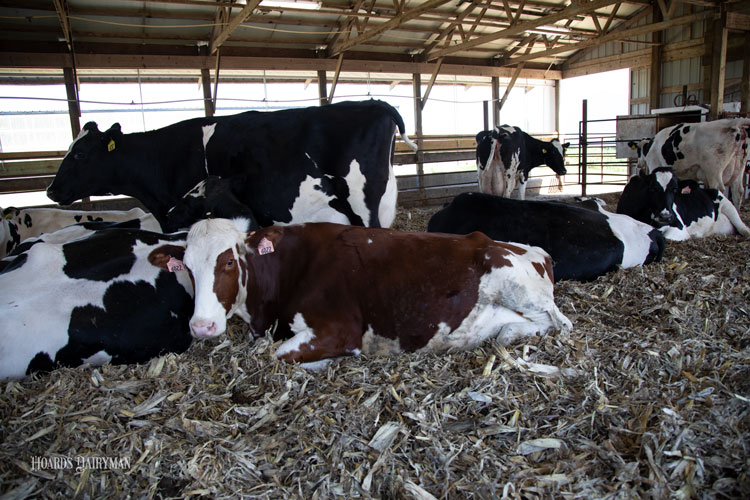
Do you have a fresh cow protocol for your dairy cows? What do you include in your fresh cow protocol? What are some barriers to implementing these protocols on your farm? Do you think fresh cow diseases impact your farm profitability?
These are some of the questions that we will ask in our nationwide research survey to determine the impact of fresh cow protocol implementation on dairy farms’ profitability and future. Your opinion as a dairy producer is highly appreciated, and your responses will be kept confidential. Please follow the link to take our research survey.
About the research survey
Cows need a little extra care during their transition from a pregnant heifer or dry cow to a productive member of the milking herd. We call this the “transition period,” which lasts from three weeks before to three weeks after calving.
Due to several physiological, metabolic, nutritional, and immunologic changes during this period, cows become vulnerable to diseases and disease conditions. Collectively, we know them as fresh cow diseases, such as milk fever, fatty liver, ketosis, retained placenta, metritis, mastitis, displaced abomasum, and even lameness.
It’s been estimated that 40% to 70% of dairy cows develop fresh cow diseases during the first months of lactation. Depending upon severity, treatment cost, and reduction in milk production, the disease cost can range from $102 to $400. Moreover, one fresh cow disease raises the risk of several other diseases and the true cost of disease could be higher than what we think.
Early diagnosis and treatment of fresh cow diseases can be achieved by implementing fresh cow disease diagnosis and treatment protocols. These protocols are written guidelines and plans of action providing standards for cow monitoring, disease prevention, identification, and treatment for all major conditions common in fresh cows.
Large-scale studies to identify the true benefits of implementing fresh cow protocols and barriers to protocols implementation are yet to be done. The University of Tennessee is conducting a nationwide research study to identify barriers and benefits of implementing fresh cow protocols in U.S. dairy farms. Please take 15 minutes to complete our research survey at the following link. The anticipated closing date of the survey is November 30, 2020.
Outcomes of this survey will be shared through the University of Tennessee Dairy website (utdairy.utk.edu) to provide resources directly to dairy farmers, extension specialists, and industry consultants. Survey information will also be used to develop an economic model to determine the financial benefits of investing in fresh cow protocols. These outcomes will be shared through the University of Tennessee Dairy website as well.
Thank you for your participation!





